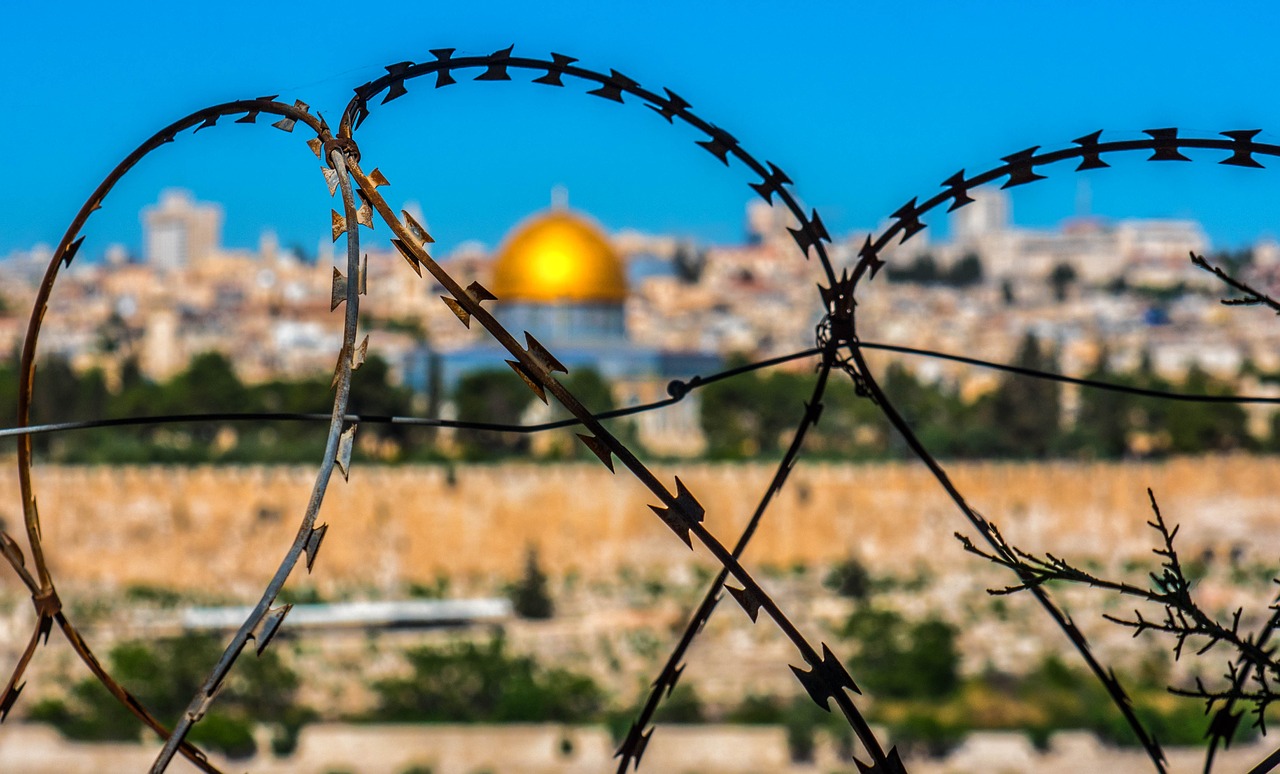Toward Peace, Justice, and Equality in Israel and Palestine
Fifteen Christian groups urged U.S. leaders to support peace, justice and equality in Palestine and Israel.
On February 15, 2017, the Maryknoll Office for Global Concerns and fourteen other members of the Faith Forum on Middle East Policy sent the following briefing paper entitled “Toward Peace, Justice, and Equality in Israel and Palestine” to all members of Congress and the Trump Administration calling for U.S. policies that promote peace, justice and equality for all Palestinians and Israelis. The following article was published in the March-April 2017 issue of NewsNotes.
As U.S.-based Christian churches, agencies, and organizations, we urge Congress and the Administration to take actions which will enhance the prospects for peace, justice, and equality in Israel and Palestine, and refrain from actions that would harm those prospects.
2017 marks 50 years since Israel occupied the West Bank and Gaza and 24 years since the signing of the Oslo Accords. Over the last 50 years, but particularly since the signing of the Oslo accords in 1993, there have been significant changes on the ground in the occupied Palestinian territories that have a negative impact on efforts to achieve peace with justice. Violations of human rights and international law have continued without consequence and are enabled further by Israeli legislative actions.
An example has been the continued and growing expansion of settlements, an approach long condemned by Republican and Democratic administrations alike as a violation of Israel’s obligations as an Occupying Power under the Fourth Geneva Convention. Settlement expansion forcibly takes property and resources from Palestinian landholders, many of whom have held legal title to their lands for generations.
- Settlements now control 42 percent of all West Bank land, areas that are recognized by the international community, and international law, as Israeli-occupied Palestinian land.
- Since 1993 the number of Israeli settlers in the West Bank (not including East Jerusalem) has increased from 110,900 to over 400,000, and the number of Israeli settlers in Jerusalem has more gone up from 146,800 to over 300,000.
- More than 15,000 Palestinian homes have been destroyed since the signing of the Oslo Accords, often as a result of Israeli authorities refusing to grant permits to Palestinians for modifying or building structures on their own lands, then destroying any homes that are modified.
These changes, among others, have caused analysts, scholars, diplomats, and politicians to assert that the window of opportunity for a viable two-state solution is closing or may have closed. As that reexamination is occurring, the underlying need for equality of rights remains.
The principle of equality is foundational to true democracies as well as to international law. It is necessary if a sustainable future is to be found for both Palestinians and Israelis. Regardless of the underlying political governance structures, equal rights and opportunities must be assured for all people in the region – not someday based on an idea of future negotiations, but as a fundamental human right today. Yet the present situation and trajectory neither reflect nor promote equality, as demonstrated by these facts, among others:
- Freedom of movement for individuals of Palestinian descent is inhibited, based on discriminatory and separate criteria;
- Trials for Palestinians in the West Bank take place in military courts, while trials for Israeli settlers take place in civilian courts;
- A two-tier system of laws, rules, and services operates for the Israeli and Palestinian populations in areas of the West Bank under Israeli control, providing preferential services, development, and benefits for Jewish settlers while imposing harsh conditions on Palestinians.
- The parameters that determine political participation in Israel break down according to ethnic and geographic lines: in the West Bank, for example, Jews can vote while their Palestinian neighbors – regardless of whether they live in “Palestinian” Area A or in “Israeli” Area C – are not eligible to vote.
Neither Israelis, Palestinians, or those of us in the U.S. will ultimately benefit from structures and approaches that reinforce inequality and injustice. To address this untenable situation, U.S. policymakers should make clear their commitment to ensuring fundamental human rights by:
- Urging the Israeli government to immediately take action to secure an end to the occupation and all discriminatory policies resulting from the occupation, including home demolitions and inequitable distribution of land and water resources;
- Applying Leahy vetting processes and other mechanisms to all recipients of U.S. security assistance consistently;
- Upholding and protecting the rights and abilities of human rights organizations and defenders to do their work, and including them as part of delegation visits to hear their perspectives;
- Urging Israeli and Palestinian leaders to uphold the values of peace, justice, and equal rights for all peoples; and urging both to refrain from actions that lead to violence while encouraging efforts to work for peace, justice, and reconciliation;
- Protecting the rights of U.S. citizens seeking to carry out nonviolent economic protests to challenge unjust policies.
Our perspectives on the situation in Israel and Palestine are based on decades, and in many cases centuries, of organizational engagement in the Middle East. We fervently pray for a just and peaceful resolution to the Israeli-Palestinian conflict, and look forward to working with Congress and the Administration to support policies that promote equality for all people in the region.
Signatories:
American Friends Service Committee
Christian Church (Disciples of Christ)
Church of the Brethren, Office of Public Witness
Conference of Major Superiors of Men
Evangelical Lutheran Church in America
Friends Committee on National Legislation
Global Ministries of the United Church of Christ and Christian Church (Disciples of Christ)
Maryknoll Office for Global Concerns
Mennonite Central Committee U.S.
National Council of Churches of Christ in the USA
Pax Christi International
Presbyterian Church (USA)
Reformed Church in America
United Church of Christ
United Methodist Church, General Board of Church and Society

